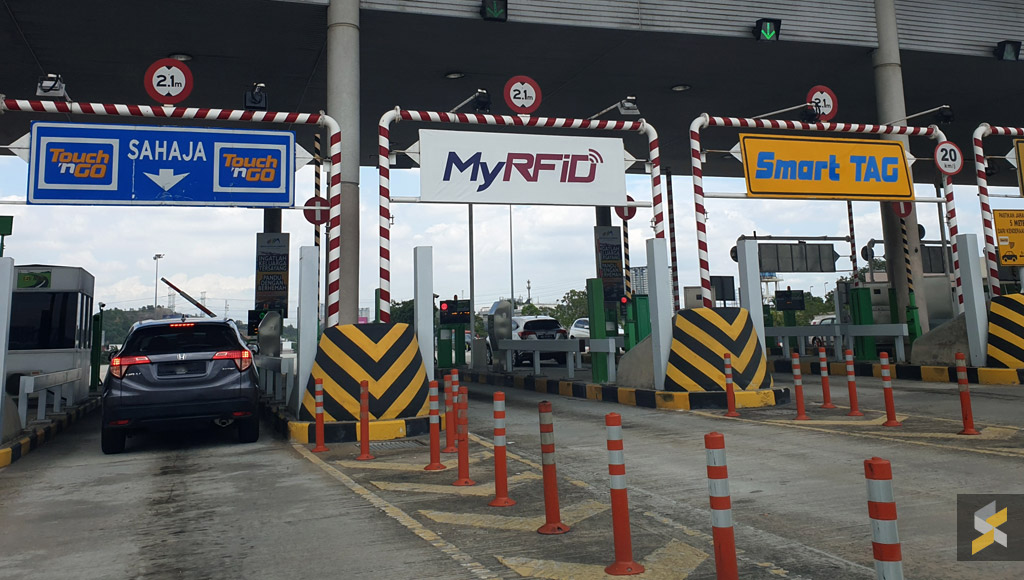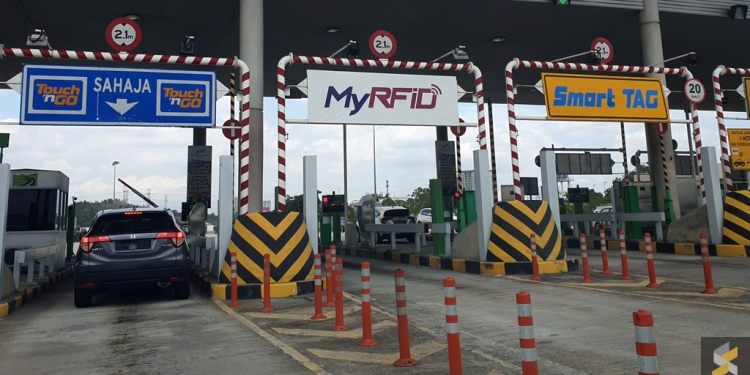
The federal government has initiated steps to replace the current highway toll system with a congestion charge system, the Prime Minister’s Office (PMO) said in a statement.
The government has initiated talks with Gamuda Berhad to negotiate terms on the acquisition of highway concessions in which the company has a majority stake. This includes Lebuhraya Damansara Puchong (LDP), Lebuhraya Shah Alam (KESAS) and the SMART Tunnel.
This, the statement said, is part of the steps taken by the Pakatan Harapan-led government to fulfil commitments stated in its electoral manifesto last year, which is to take over highway concessions and gradually reduce toll rates according to the terms in concession agreements.
Should the acquisition be successful, the government will then abolish the current highway toll system on these highways in favour of a congestion charge system. The new system proposes three periods — peak, off-peak and normal — in which different congestion charge rates will be applied.
During off-peak periods between
The PMO explained that collection from the congestion charge would be used to pay for the cost of operating and maintaining the highways and loan repayments while the excess would be channelled into a national public transport fund that will be used for public transport improvement initiatives.
The PMO concluded its statement on its proposal by saying that the Finance Ministry would announce further details at the appropriate time. However, no timeline or milestones have been made available to the public.
Is congestion charging better than a toll system?
Whether you agree or not, let’s face it, as road users, we will have to pay for the roads we use, especially highways. We will have to pay for maintenance, road side assistance and the upkeep of the company that oversees the operations.
The question is what is the best way to distribute the costs of maintaining a highway evenly to everyone in so that it doesn’t burden road users and affect other costs?
The good thing is that congestion charge is not a new thing, major cities all over the world have adopted the system and many more are considering it. Today cities like Singapore, London, Stockholm and Milan all have some form of congestion charging for road-users.
The benefit of this is that Malaysia has a large and diverse pool to learn from and adopt the best practices that fit the specific needs of our people.
The other major benefit is congestion charging, as the name implies, can help reduce road congestion significantly. Take London’s congestion charge system for example. In 2003, on the day the system took effect, traffic in the city was reduced by up to 25%.
In Stockholm, where
It’s proven that congestion charging has a number of benefits but it depends entirely on the implementation and intent of the program.
Beyond just a manifesto promise
The side effect of reduced congestion in the city is less stress, improved air quality and the proliferation of other modes of transportation, like bicycles and scooters which will be great for cities like Petaling Jaya, Kuala Lumpur and Shah Alam
If paying for congestion charge means, no more jams, better air quality and more freedom for cyclists then I am all up for it but there are other things to consider as well.
How will the charging system be? A flat-rate charging system may not work as it will allow construction vehicles that pollute more and are arguably more dangerous into city areas.
Will there be vehicle exemptions? Exemption for electric vehicles or low-emissions vehicles would be a good incentive for drivers to buy only the most environmentally friendly cars or at least, carpool with friends that have eco-friendly vehicles. On the flip-side, like in Sweden where company cars are exempted from congestion charging, those who have the benefit of a company car avoid congestion charging while those who don’t have company cars (typically middle and low-income earners) will have to foot the bill.
What about motorcycles? Currently motorcycles don’t pay any toll in Malaysia except for some very rare instances like on the Penang Bridge. Would motorcycles still enjoy free rides though highways once congestion charging starts? If that’s the case then it is possible that car owners would buy cheap small motorcycles to circumvent convention charge.
At the end of the day, replacing the current toll system with a congestion charge system can be beneficial but ultimately it depends on proper and careful planning, precision implementation and strict enforcement to ensure equality.
At the same time, the government will need to expand its negotiations with other highway concessions as well so that the benefit of cost reduction through the abolishment of the toll system in favour of a congestion charge system is felt throughout the country and not just in the Klang Valley.








